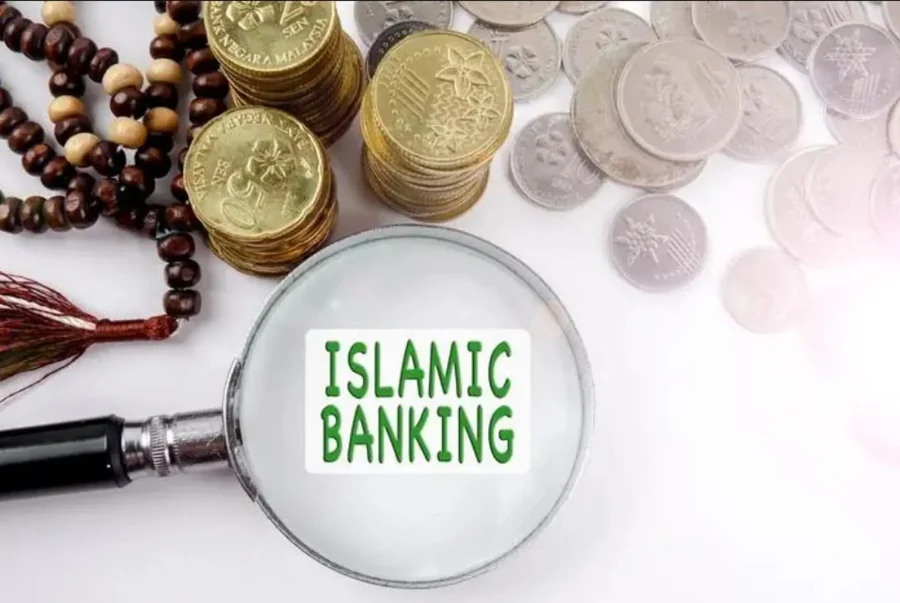Türkiye has consistently shown a dedication to growing its Islamic finance industry and positioned itself as a center for participation banking and investments, according to a senior executive.
“Türkiye has made important contributions to advancing Islamic banking and luring capital from Islamic nations,” Yousef Hassan Khalawi, secretary-general of the Islamic Chamber of Commerce, Industry and Agriculture said.
Türkiye has been pitching itself as an attractive spot for capital from countries with a predominantly Muslim population, and promoting Islamic finance has been part of government plans to boost commercial ties with the Gulf and diversify the country’s investor base.
Bridging the East and West makes Türkiye “an attractive destination for investments from Islamic countries,” Khalawi told Daily Sabah in an interview.
“Its proximity to Europe, the Middle East and Asia provides access to a wide range of markets and business opportunities. Türkiye has actively leveraged this advantage to attract investments, including those from Islamic countries,” he noted.
Türkiye has come a long way, but there is always an opportunity for improvement and there are more other steps that should be taken to promote the country as a leading destination for Islamic finance, according to Khalawi.
“Türkiye can continue to strengthen its regulatory framework, promote financial education on Islamic finance, increase the variety of Shariah-compliant products and services, and strengthen its engagement with Islamic financial institutions and investors globally to increase its role in facilitating Islamic finance and luring investments,” he said.
Türkiye boasts a comprehensive legal and regulatory framework to support the Islamic finance industry. It introduced the Participation Banking Law in 1983, which provided a solid foundation for Islamic banking operations. Its regulatory bodies such as the Banking Regulation and Supervision Agency (BDDK) and the Capital Markets Board (SPK) oversee and regulate Islamic financial institutions.
Türkiye has implemented legislative and regulatory reforms to create a supportive environment for Islamic finance. It enacted the laws and amendments to its existing legal frames and regulations to accommodate Sharia-compliant financial products and services, “ensuring a level playing field for Islamic finance institutions,” according to Khalawi.
Islamic finance in Türkiye has been predominantly driven by domestic Islamic banks, known locally as participation banks. The number of participation lenders in the country reached eight as of May this year.
The banks boasted TL 1.4 trillion ($52 billion) in assets as of May, according to Participation Banks Association of Türkiye (TKBB) data. They are running a network of more than 1,400 branches across Türkiye and employ some 18,650 people.
The member banks saw their net profitability increase by 443% and asset size grow by 65.6% to nearly TL 1.19 trillion as of the end of 2022, according to the association. Their share in the banking sector reached 8.4%.
Robust market, consumer base
“Türkiye’s Islamic banks have attracted significant investments and performed big numbers to be a model of excellence to the whole world, as well as catered to the financial needs of the local population,” Khalawi said.
Khalawi, who is also secretary-general of AlBaraka Forum, said they are looking at the opportunities in Türkiye, reaffirmed by many major events and programs he says they had dedicated “to empower the Turkish market with the opportunities, awareness and developments that required with consideration of the contemporary challenges and changes.”
“We are providing a global platform and forum for stakeholders from around the world to exchange ideas, share best practices and explore opportunities for collaboration to contribute to promoting the Islamic Finance and economics culture by facilitating meaningful discussions and contributing to the growth and development of the Islamic finance sector in Türkiye,” he added.
Khalawi further stressed several factors that he said contribute to Türkiye’s attractiveness as a destination for Islamic finance and business development, citing its robust domestic market, sizeable consumer base and demand for Shariah-compliant financial products and services.
“Türkiye has a large and dynamic domestic market, with customers and users from all around the globe. This sizable consumer base provides significant opportunities for businesses and investors in various sectors, including Islamic finance. The demand for Shariah-compliant financial products and services is growing within the country, which further enhances Türkiye’s appeal as an Islamic finance destination,” he explained.
He also referred to historic links, saying that the Islamic cultural and historical background and heritage of Türkiye established a strong ground for modern Islamic finance and banking services.
“This historical legacy, combined with the country’s commitment to preserving Islamic traditions, makes Türkiye an attractive destination for Islamic finance and business development. It creates a sense of familiarity and cultural affinity for investors and businesses from Islamic countries.”—Daily Sabah










